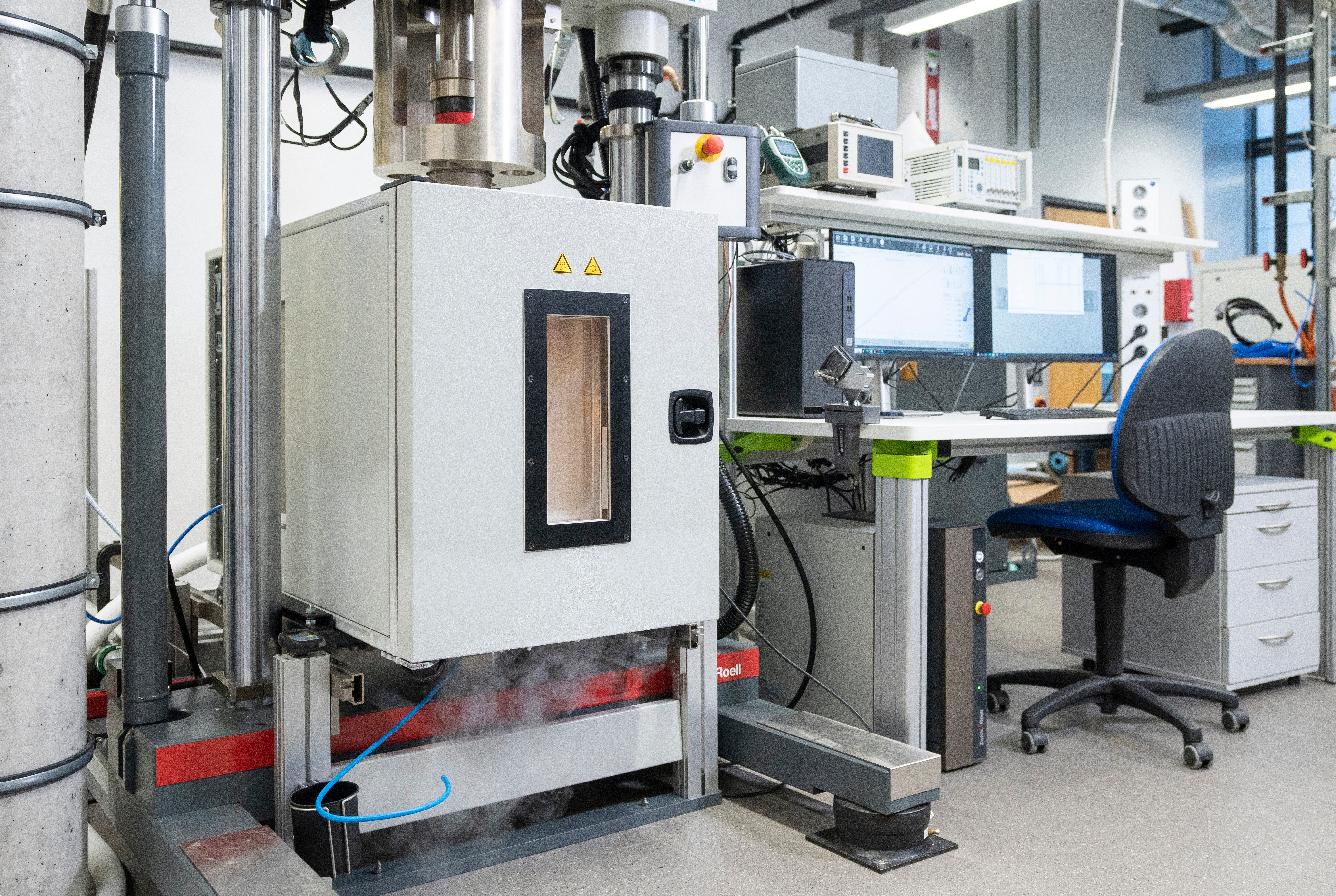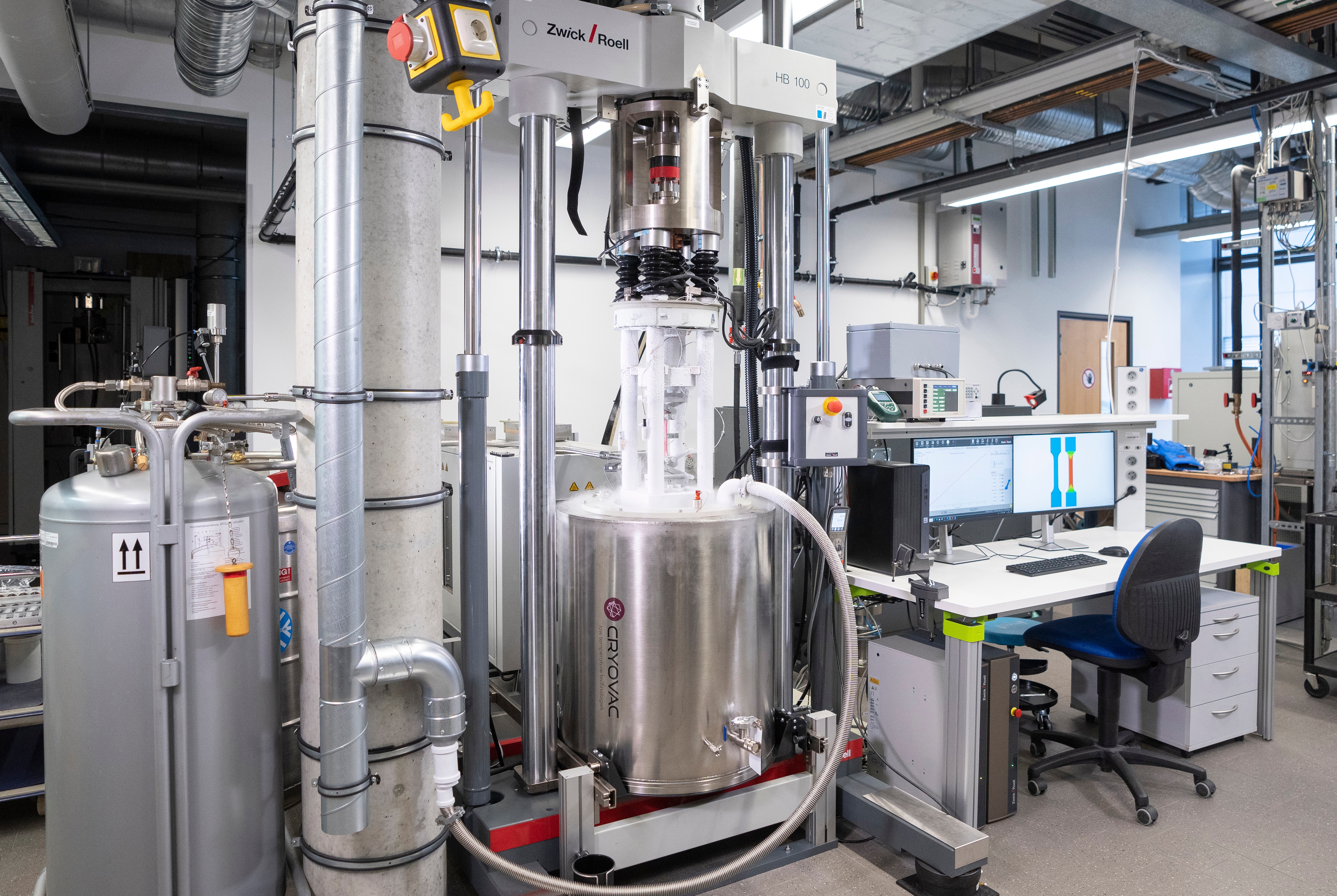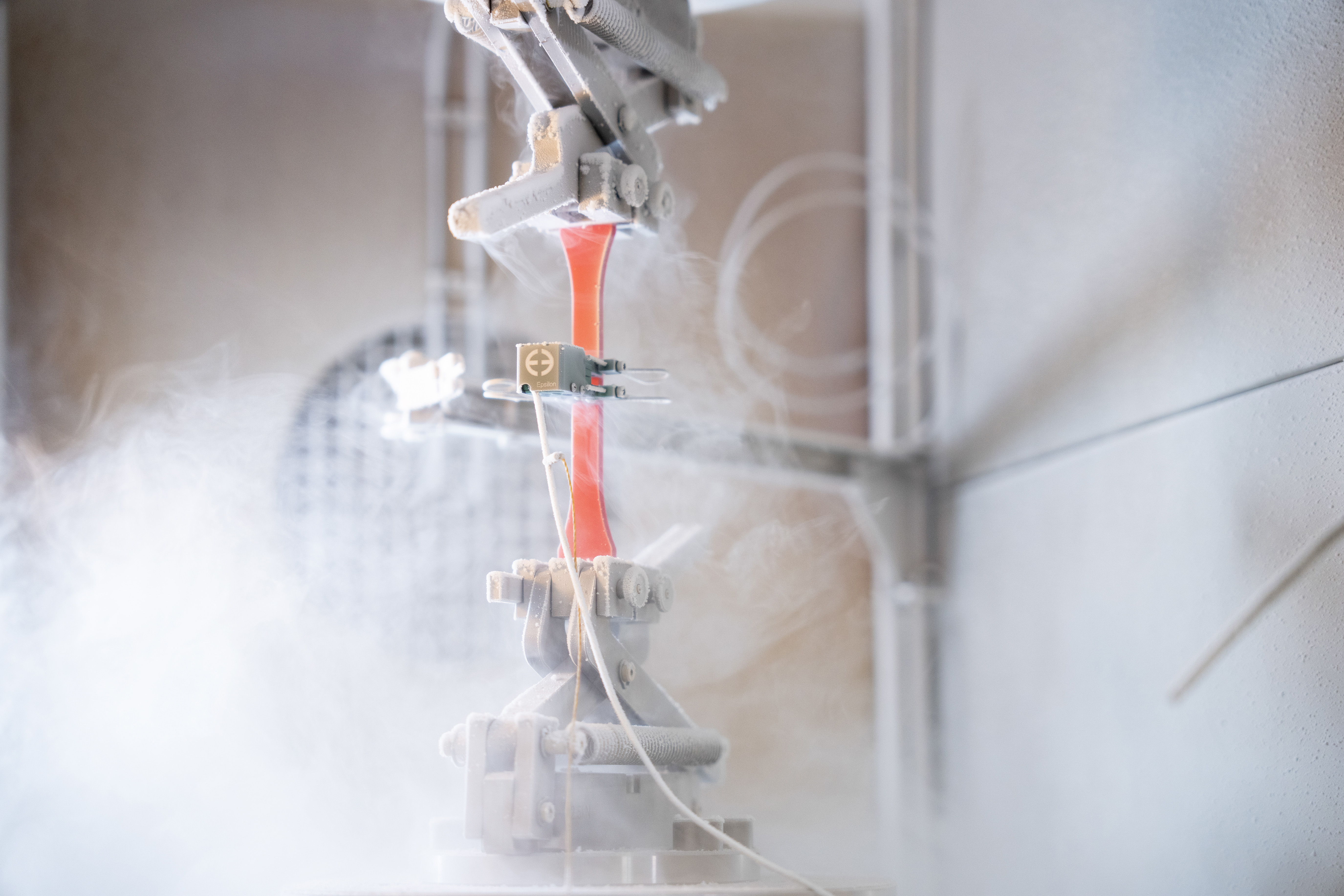Determination of material and small component properties of polymers, composites, and adhesive joints at cryogenic temperatures


Fraunhofer IFAM offers outstanding possibilities for material testing at extremely low temperatures. In addition to tests in liquid nitrogen at -196°C, we can also carry out tests in gaseous nitrogen at temperatures down to -180°C.
Testing a wide range of materials under extreme conditions in a cryogenic testing machine
Not only quasi-static but also cyclic tests can be carried out at cryogenic temperatures. These cyclic tests are particularly important as they reflect material fatigue under repeated loading. Our extensive testing capabilities enable us to test a wide range of materials, including polymers, adhesives, composites and metals, under extreme conditions.
Our cryogenic testing machine has a special setup that allows material testing in a cryogenic tank with liquid nitrogen at -196°C and in a climatic chamber for temperature controlled testing in the range of -180°C to 200°C. This versatility represents an extension of the already established static and dynamic testing machines at Fraunhofer IFAM. Our researchers have outstanding expertise and a lot of experience in testing in the temperature range from -50°C to 200°C, which they are now extending into the cryogenic temperature range.
Prediction of material failure through simulations
In addition to the practical tests, we at Fraunhofer IFAM create mathematical models to predict the failure of materials at cryogenic temperatures. These form the basis for finite element simulations and serve as a valuable tool for assessing the service life and reliability of materials under extreme conditions. The models are supported by experimental data and enable precise calculation of component behavior in these special environments.
Variable test methods - for aerospace, renewable energies and more
Our cryogenic tests can be used in a wide range of applications. In the aerospace industry, materials have to withstand extreme temperature fluctuations and stresses. Material tests under extreme conditions are also of great importance in the development of new hydrogen technologies in the field of renewable energies.
In addition to our cryogenic tests, our accredited materials testing laboratory offers a wide range of other services. Our comprehensive services and our highly qualified team ensure that we can offer the right solution for every customer-specific problem.
 Fraunhofer Institute for Manufacturing Technology and Advanced Materials IFAM
Fraunhofer Institute for Manufacturing Technology and Advanced Materials IFAM